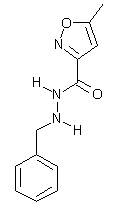THE STRESS OF working at a turbulent office finally dragged 37-year-old Maggie Little * under. For the second time in her life, she recognized the smothering symptoms of depression--slowness, a bleak outlook and lack of interest in fun. Her doctor prescribed Lexapro, a selective serotonin reuptake inhibitor, or SSRI.
The pill quickly kicked in. It was "a miracle," she says. Six months later, Little still loves Lexapro, but she's desperate to switch to another drug. Like many people using SSRIs, she gained a significant amount of weight--40 pounds.
Weight gain has long been a bane of psychotropic drug treatment. Mood stabilizers such as lithium and clozapine are among the worst offenders, causing up to 50 percent of all long-term users to become obese. Patients on older tricyclic antidepressants can expect a steady gain of one to three pounds per month. But the medical community was caught off guard when patients on newer antidepressants complained the pounds were piling on.
If anything, says Charles Raison, a psychiatrist with Emory University in Atlanta, drugs such as Prozac and Zoloft were believed to cause weight loss. indeed, many antidepressants seem to be associated with an initial small loss, but new studies show that over months, patients not only regain what they lose, but add to it--sometimes dramatically. "It's not always the fault of the drug," says Raison. "Depression can be, all by itself, an incredible diet. When [patients] start to feel better again, their appetite increases."
The metabolic pathway at work is a mystery, although current theories include resistance to the hormones insulin and leptin. One study found that those most vulnerable to antidepressant-induced weight gain are women and patients who were already overweight. On the bright side, gaining some extra padding is usually linked to the drug's efficacy. "A few extra pounds usually means the drug is doing something," says Raison. But he says many of his patients would rather be sad than fat.
Exercise and diet can help, of course. The drug orlistat, or Xenical, which blocks the body's ability to absorb dietary fat, also shows promise. Switching drugs may also provide some relief.
* name has been changed
HEAVY HITTERS
COPYRIGHT 2005 Sussex Publishers, Inc.
COPYRIGHT 2005 Gale Group



